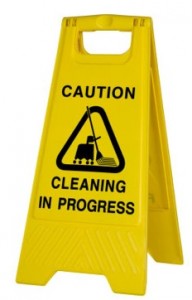“What are the differences between short sales and auction properties?”
When a homeowner falls behind in their mortgage payment and doesn’t catch up, refinance or sell the property, the home is going to become a foreclosure property.
So which is the best stage of the foreclosure process for an investor to buy the distressed property? Before the foreclosure auction, at the auction, or after the auction?
Pre-Foreclosures and Short-Sales
What is a Short Sale?
If you buy a home directly from the owner, but for an amount less than the mortgage  owed, that’s a short-sale. While it used to be common for creative investors to buy pre-foreclosures without paying off the mortgage (subject to deals, wrap mortgages, lease options, etc.), the lack of equity in the vast majority of today’s distressed homes makes those tactics MUCH less useful. Instead, focus on getting the bank to take less than what is owed… a Short Sale.
owed, that’s a short-sale. While it used to be common for creative investors to buy pre-foreclosures without paying off the mortgage (subject to deals, wrap mortgages, lease options, etc.), the lack of equity in the vast majority of today’s distressed homes makes those tactics MUCH less useful. Instead, focus on getting the bank to take less than what is owed… a Short Sale.
Why a Short Sale?
Short sales are plentiful, and can be financially rewarding. There is no shortage of underwater houses with desperate sellers. A seller who can short sale his house STOPS the foreclosure process, protecting his credit and often eliminating any risk of a deficiency judgment. So buying a short sale helps the seller, in a way that buying later in the process just can’t. As an investor, you can find short sales at any price point, in any neighborhood, with a simple MLS search.
Making a Short Sale work
The major key is to work with a real estate agent experienced in short sale negotiations. While most of the banks have streamlined their short sale approval process (especially in the past few months), the process still takes a long time and a great deal of patience. An agent who is actively involved in tracking and following your offer is invaluable. You need an agent who anticipates the bank’s moves and knows how to successfully negotiate the playing field … especially since the bank is paying the commission.
What is needed?
Before a bank approves a short sale, the asset manager is going to require at least one BPO (Broker Professional Opinion) or CMA (Comparable Market Analysis), which is essentially a light appraisal based on comps in the area. The bank also needs to see a variety of documents, (sometimes on their own forms) including:
- A fully executed sales contract (with all signatures and initials)
- An executed listing agreement (showing the property has been marketed)
- A hardship letter from the seller (telling their story why a short sale is needed)
- Seller’s bank statements, tax returns, W-2s, and payroll stubs
- An Estimated HUD-1 (closing statement showing the net to the bank)
How to submit
Ten years ago, we would deliver short sale packages by FedEx because banks would always claim to lose the package or would accidentally shred the fax. Now most banks have adopted online software to submit shortsales. But some banks still prefer faxed documents. You need to know before you submit.
Its always a good idea to submit your own CMA with the short sale package, to justify the sales price and help set the asset manager’s expectations.
ALWAYS submit an exhaustive list of all the repairs needed on the home, together with pictures and multiple bids for the repair estimates. The more repairs, the lower the value, and the better the deal you can expect.
Getting the offer accepted
Remember that in most cases, nobody knows if a short sale offer will be accepted or rejected by the bank in advance. A short sale listing simply means the seller and the listing agent HOPE the bank will take a reasonable short sale offer. Banks turn down plenty of reasonable offers. But most of the time, the bank rejects the short sale because:
- Offer is too low (bank believes foreclosure will net more)
- Short sale package is incomplete (or the bank “lost” documents)
- Seller does not qualify (too much income/asset shown)
- Bank sold the loan (often months ago… even though they were negotiating with you)
Short sales compared to auction properties
Short sales are a LOT less risky than auction properties. With Short sales:
- You get lots of time for inspections, surveys, appraisals, title insurance and closing.
- You can lock up the property with a minimum down payment.
- You have many opportunities to back out of the deal.
- You get to negotiate the best possible price.
On the other hand,
- Auctions often sell at a steeper discount than short sales.
- You don’t need much patience with auction properties.
*BIG SECRET for successful short sale offers
Until a bank has actually accepted a short sale offer, there is no way of knowing whether they will let a house go for a particular price. And a bank will not accept an offer (or even hint at the bottom line price) until a complete short sale package has been submitted and reviewed. Until that acceptance, the list price is just to gauge interest from the public.
Want to increase your short sale success dramatically? Look for “preapproved” short sales, where the bank already accepted an offer and the buyer walked. Properties marketed this way are much easier and quicker to close. The bank already knows what the BPO or CMA will show, and has already determined the amount of loss they are willing to write off. They just need a new buyer…
**HUGE SECRET for auction buyers
I can’t tell you the number of foreclosures we have bought at the auction, only to find out that agents were putting the final touches on a short sale closing. The bank was telling everybody the short sale was approved and ready to close… but the bank didn’t tell their attorney to cancel the foreclosure sale
The interesting thing was that we bought these houses at the auction for significantly less than the bank would have made through a short sale. The bank discounted MORE at the foreclosure auction than they would have had to discount the mortgage. Once, we flipped the house the day we got title… to the short sale buyer…. for a huge profit.
So finally, we started submitting short sale offers on upcoming foreclosure auction properties, about a month ahead of time. The banks would do the BPO, decide their bottom line number, and then… let it go to auction anyway. But they would reliably discount the judgment and reduce their strike price at the sale. And since we already knew the rehab and resale numbers, we could bid confidently at the sale.
–David








